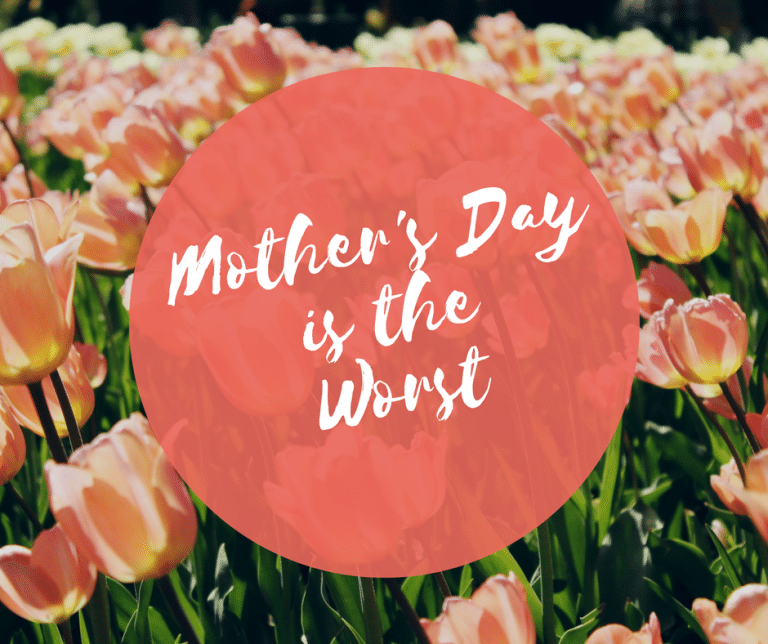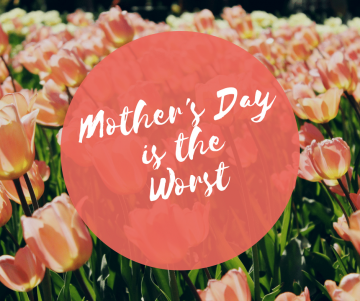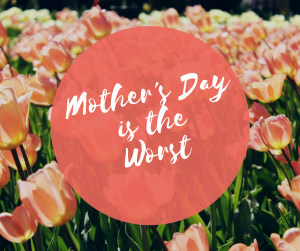The twentieth anniversary of my mother’s death is in eighteen days. I was seventeen years old and one week away from graduating high school. When I decided on a simple black prom dress months before, I had no idea that I’d be attending my mother’s funeral on the same day. The older church ladies chastised me for wearing my black pants and sweater to the funeral, but I couldn’t make myself wear my black dress to both events. It was too much grief for a prom dress.
My experience of her death was complicated by the quality of our relationship and the manner of her death. She was diagnosed with Borderline Personality Disorder and treatments at that time were not effective at managing her condition. Needy and impulsive, she wasn’t the stable, healthy woman that I needed her to be. I was angry, so angry, with her the last time we spoke. She had treated my sister poorly again, always harming the people closest to her. “I love you,” she spoke hopefully the last time we talked, but I hung up the phone. I was done in teenager terms, but she was done for real. My mother overdosed later that night. Mormon women are supposed to be happy, not die by suicide.
It shouldn’t have surprised me that becoming a mother brought so much fear and anxiety and depression, though it did. An unexpected pregnancy too soon after the first one did not help. Before long, I was drowning in motherhood. Drowning. I tried to talk with my visiting teacher, but she changed the subject. My husband didn’t know what to do. I had difficulty making friends in a new place. I felt devastatingly alone and those feelings were beginning to threaten my existence.
I discovered Mormon blogs a few years before my first pregnancy and started visiting Feminist Mormon Housewives more and more after my second daughter was born. I read a backlog of posts about women struggling with motherhood. I clearly remember reading about Lisa Butterworth’s periodic mothering breakdowns and Nat Kelly’s difficult relationship with her mother, who was homeless and addicted to drugs. So many posts presented motherhood and daughterhood as complicated fraught relationships and experiences. I was comforted by the grief of others, who challenged General Conference narratives of motherhood with their messy life stuff. Maybe I wasn’t alone in my brokenness. Maybe this wasn’t just me. Maybe.
I’ve come a long way since that time. Fear, anxiety, and depression no longer rule my life in the way that they once did. I love my two daughters and I’m thrilled with people that they are becoming. I am proud of my marriage and my husband and I are about to celebrate fourteen years together. There are many sources of joy in my life and many happy, healthy relationships. But Mother’s Day and my mother’s death anniversary are still hard. They are the two days each year when I still grieve, the only times when I get upset enough to cry about what I never really had and then lost too early in life.
I don’t share this story so that you will pity me; pity just isn’t that useful. I share this story so that those whose mothers and daughters have also experienced severe mental health problems, breakdowns in relationships, moments of overwhelming regret, or the intense pain of surviving a family member’s suicide can read the story of someone who has been through something similar. Growing up, I thought I was the only kid whose mother lived in a mental health hospital. Today, I am confident that I am not alone in the particular conditions of my grief, in the details of my trauma. The vulnerable stories of other women saved me in a way that nothing else did. I shy away from certainty in my religious beliefs, but I know the power of those narratives. These are the sacred stories of my community.
On this Mother’s Day, I want to celebrate this sharing of hard stories. A few days ago, my co-https://exponentii.org/wp-content/uploads/2021/12/IMG_5173-scaled-1.jpg Sara K.S. Hanks and I published Where We Must Stand: Ten Years of Feminist Mormon Housewives. It is an anthology of blog posts from FMH, which first showed me that I wasn’t the only Mormon woman who had a complicated relationship with motherhood. I offer it to you, dear reader, as the very best Mother’s Day gift I can give to you. Whether you are a mother or a daughter or both or neither, I invite you to read this book and find something that resonates with your own situation and challenge you to understand something new about the diversity and complexity of Mormon women’s experiences.







14 Responses
What a tender story to share, Nancy. Thanks for writing it here. I’m so glad when we leave our pieces of truth where other people can find them.
Thank you for being the friend who can handle the complicated and echo the grief, confusion and brokenness of life. Here’s to growing up and down together.
Beautifully said, Nancy. Thank you for sharing this vulnerability. Mental illness is so hard to deal with, but I love a sisterhood that helps each other through.
Wow, Nancy. Thanks for sharing your complicated relationship with your mother. I’m sure you’re right and that you’re not alone, and I hope that you’ve helped others in similar difficult circumstances also realize that they’re not alone.
Also, I love that you found solace in the writings of the fMh folks, and then that all these years later, you’ve gotten to work with Sara to edit some of those writings into this book. What a great circling back!
I fee your heart so much in this post, dear Nancy. Although I don’t know the loss of a mother in the way you experienced it. I too know something of mother loss. My heart aches as well on this day. Motherhood is complex for those of us who are, and maybe have always been in a sense, motherless. Holding you in my heart.
And I know your anthology is going to be huge succes. Looking forward to purchasing my copy!
Nancy, thank you for speaking up and sharing your experience. Stories like this–stories that are uncomfortable and difficult and don’t fit the mold–are so important for all of us to hear. Your words make room for others, and I’m so grateful for that.
You have a beautiful heart, Nancy. Thank you for sharing it. I am sad for the struggles your mother endured, and passed on to you to finish, but If going through hard things, terrible things, makes us strong enough to help another, then all is not lost. You gave beautiful voice to a difficult subject. Love and good thoughts to you and yours.
This is so important. Thank you for posting such an important story. I’m so glad we can create that comfort for each other as friends.
Dear Nancy. Thank you for sharing this beautiful, devastating post. I am so inspired by women who dare to tell the truth of their lives.
<3 <3
I’m sorry, Nancy. My mother also committed suicide. However, she hid her mental illness from us and didn’t acknowledge it. Growing up,I was taught that mental illness was fake. People who feigned it were weak, looking for attention, and of low character. My mother seemed to believe this also. After her death it has taken a long time to figure out what’s normal and real, and what’s not.
This is beautiful and heartbreaking and devastating. I am grateful that you wrote it.
While it wasn’t the main focus of the post, I keep thinking of the women who chastised a minor for wearing pants at her mother’s funeral. That was what they thought you needed to hear from them just then? It makes me sad.
I loved this post. I resonate with being dismissed when facing mental illness after giving birth, this happened to me and I found it devastating. Wish the women in my life had helped prepare me, I was so young and they knew enough about those issues to help me. I love how you describe the healing power of hearing other women’s stories. I’ve found so much healing and peace by having my most frightening patterns and experiences normalized by others. Mother’s Day really is a day of pain and wincing for a lot of us, and it is nice to have that voiced.